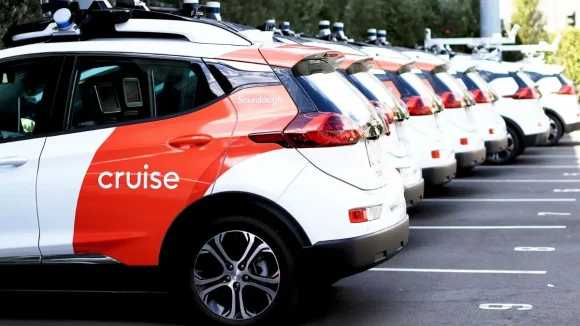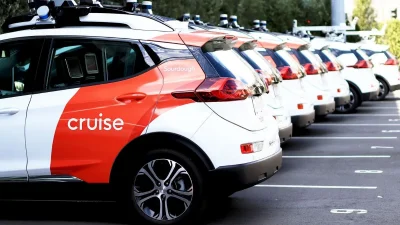In the rapidly evolving landscape of autonomous vehicles (AVs) and robotaxis, General Motors’ self-driving taxi subsidiary, Cruise, is making strategic changes to its operating model.
Following the departure of co-founder and CEO Kyle Vogt, the company is adopting a more ‘realistic plan.’ With Mo Elshenawy as the new CEO, Cruise paused production on its custom-built Origin shuttle. The company will instead focus on its current robotaxi platform, the Chevy Bolt AV.
ALSO READ: Cruise co-founder Kyle Vogt resigns as CEO
Elshenawy reportedly says even though development of the Origin program will continue, the vehicle will not be produced in 2024. In the meantime, Cruise will be reviewing its layoff plans. Additional updates to follow in the coming weeks.
Cruise timeline pending
Elshenawy says once the company’s “safety culture” has been improved and trust rebuilt, their “strategy is to re-launch in one city and prove our performance there, before expanding.”
He didn’t say when operations would start again.
This new approach is a deviation from Cruise’s aggressive multi-city strategy, which was the focus in 2023 when the robotaxi operations expanded into Seattle and Washington. At the time, Cruise was already actively mapping, testing, and deploying self-driving vehicles in 15 cities.
Focus on trust and safety
The new direction comes as the company seeks to balance innovation with practical business concerns, especially in the current economic climate. The company’s main focus now is to win back the trust of regulators.
Cruise also places emphasis on its commitment to safety after recent incidents put the spotlight on the challenges of autonomous vehicle technology. Financially, however, the company is facing significant setbacks.
It’s becoming tougher for Cruise to turn a profit since the company recorded a $700 million loss during the third quarter of the current financial year. Regulatory challenges, such as the suspension of driving permits, only complicate matters.
The bigger picture
The changes at Cruise reflect broader trends in the AV industry. While Cruise is navigating complex waters, its ability to adapt and prioritize safety will likely shape the future of autonomous transportation.
The strategic shift to downscale can be seen as a survival tactic to manage financial constraints. It also redefines how the industry approaches the balance between technological innovation and operational feasibility.
Cruise’s safety report highlights how the advancements in this regard “are never complete.”
The company still believes that AVs have the potential “to improve transportation safety, transition on-road miles from fossil fuels to sustainable energy, and improve transportation access to customers of all demographics.”
About the author
Cheryl has contributed to various international publications, with a fervor for data and technology. She explores the intersection of emerging tech trends with logistics, focusing on how digital innovations are reshaping industries on a global scale. When she's not dissecting the latest developments in AI-driven innovation and digital solutions, Cheryl can be found gaming, kickboxing, or navigating the novel niches of consumer gadgetry.











